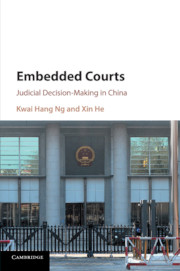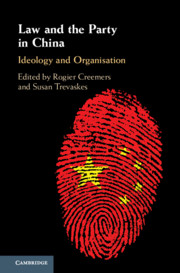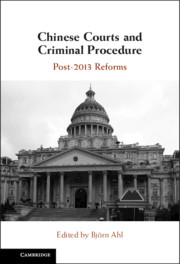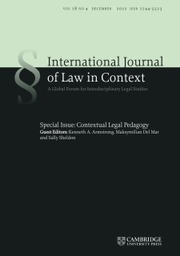Embedded Courts
Judicial Decision-Making in China
$62.99 ( ) USD
- Authors:
- Kwai Hang Ng, University of California, San Diego
- Xin He, City University of Hong Kong
- Date Published: November 2017
- availability: This ISBN is for an eBook version which is distributed on our behalf by a third party.
- format: Adobe eBook Reader
- isbn: 9781108359467
Find out more about Cambridge eBooks
$
62.99 USD
( )
Adobe eBook Reader
Other available formats:
Hardback, Paperback
Looking for an examination copy?
If you are interested in the title for your course we can consider offering an examination copy. To register your interest please contact [email protected] providing details of the course you are teaching.
-
Embedded Courts is laden with tension. Chinese courts are organized as a singular and unified system yet grassroots courts in urban and rural regions differ greatly in the way they use the law and are as diverse as the populations they serve. Based on extensive fieldwork and in-depth interviews, this book offers a penetrating discussion of the operation of Chinese courts. It explains how Chinese judges rule and how the law is not the only script they follow - political, administrative, social and economic factors all influence verdicts. This landmark work will revise our understanding of the role of law in China - one that cannot be easily understood through the standard lens of judicial independence and separation of powers. Ng and He make clear the struggle facing frontline judges as they bridge the gap between a rule-based application of law and an instrumentalist view that prioritizes stability maintenance.
Read more- Studies Chinese courts in action in order to better understand the Chinese legal system
- Adopts a sociological perspective which addresses internal variations among Chinese courts
- Provides empirical analysis and first-hand interviews with judges and court officials to determine the logic governing decision-making
Awards
- Winner, 2018 Distinguished Book Award, Asian Law and Society Association
Reviews & endorsements
‘It is a book about the growing heterogeneity and transformation of the Chinese court system, in relation to the nature of China’s partystate and the changing social, political, and economic environment … Through this analytical framework, disparate strands of researches on Chinese courts can be brought together. This book provides an important touchstone for researches on Chinese courts for years to come.’ Juan Wang, Journal of Chinese Political Science
See more reviews‘Every good book raises as many questions as it answers, and this is a very good book. The most obvious concern China, and Embedded Courts will be required reading for those interested in China.’ Frank K. Upham, Law & Social Inquiry
Customer reviews
Not yet reviewed
Be the first to review
Review was not posted due to profanity
×Product details
- Date Published: November 2017
- format: Adobe eBook Reader
- isbn: 9781108359467
- availability: This ISBN is for an eBook version which is distributed on our behalf by a third party.
Table of Contents
1. Chinese courts as embedded institutions
2. The daily rounds of frontline judges
3. Cohorts of judges
4. Administrative embeddedness - the vertical hierarchy of control
5. Political embeddedness - courts as a stability maintenance agency
6. Social embeddedness - ties from within and from without
7. Economic embeddedness - the political economy of court finances
8. Conclusion
9. Methodological appendix.
Sorry, this resource is locked
Please register or sign in to request access. If you are having problems accessing these resources please email [email protected]
Register Sign in» Proceed
You are now leaving the Cambridge University Press website. Your eBook purchase and download will be completed by our partner www.ebooks.com. Please see the permission section of the www.ebooks.com catalogue page for details of the print & copy limits on our eBooks.
Continue ×Are you sure you want to delete your account?
This cannot be undone.
Thank you for your feedback which will help us improve our service.
If you requested a response, we will make sure to get back to you shortly.
×











